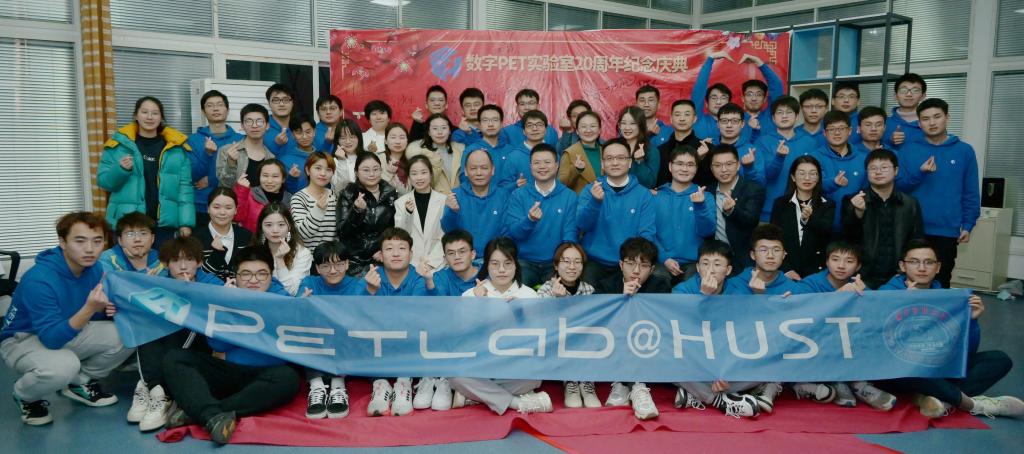The lab is dedicated to PET system development, PET image reconstruction, multi-modality medical image processing, application adaptive PET, development and application of SiPM, etc.
It has attracted researchers and students from more than 13 majors such as biomedical engineering, electronic engineering, chemistry, physics, automation, clinical medicine, nuclear medicine, etc.
Based on the characteristics of chain innovation in the field of PET research, a teaching camp led by the inventor of digital PET has been constructed, which brings together research talents in the fields of optoelectronic devices, high energy particle physics and detection technology, new system design of digital PET and image reconstruction.
Focusing on digital PET instrumentation, 4 professors from China and Europe, 33 graduate students, and around 10 college students are working on physics, information technologies, optoelectronics device technologies and engineering for PET, PET/CT, and PET/MRI imaging.
A PhD degree in Electrical Engineering, Medical Physics, Biomedical Engineering, Applied Physics, or Computer Science.
Adhering to the concept of "engine" talent cultivation, the laboratory pays attention to the cultivation of“self-motivated”talents, and constantly optimizes teaching methods. We have created undergraduate courses such as PET instrumentation foundation with constructive and research-oriented teaching methods.
We have guided students to participate in major scientific research activities and academic exchanges around the world many times. We have guided undergraduate and master students to win more than 30 awards, such as the IEEE NSS/MIC Newcomer Award, the NIH Outstanding Young Scholar Award and the Geneva International Invention Exhibition Gold Award.
With its international talent training characteristics, it has attracted top European scientists in relevant fields to teach full-time and has a joint steering group (including Nicola D'Ascenzo, professor of Italian nationality at Huazhong University of Science and Technology, Chien-Min Kao, professor of Finland National PET Center, Knuuti Juhani and Dr. David McNally of industry). The team has maintained long-term cooperation with universities, research institutes and hospitals around the world.
Members of the team have the opportunity to work with the University of Chicago, Enrico Fermi Institute, University of California, Berkeley, Lawrence Berkeley National Laboratory, Fermi National Accelerator Center, SiPM Laboratory, Moscow Institute of Engineering Physics, Russia, and the European Nuclear Center.(CERN, Finland National PET Center and other world-renowned research institutions cooperate and exchange.
Welcome!![]()





